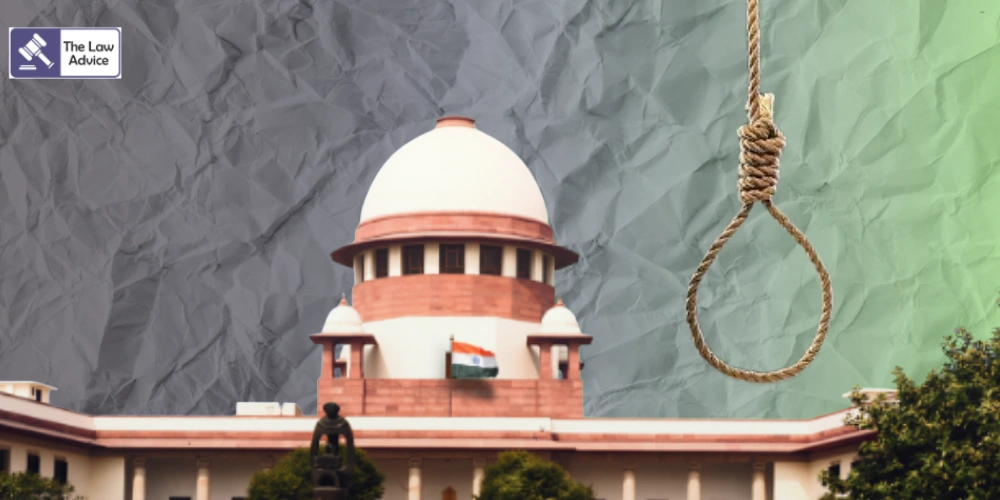
The Supreme Court, in a hearing on a PIL seeking to abolish death-by-hanging, expressed concern over the Union government’s reluctance to consider alternatives such as lethal injection for death row convicts.
The bench, comprising Justices Vikram Nath and Sandeep Mehta, noted that the government appears unwilling to adapt to evolving standards over time. During the hearing, a proposal was made suggesting that the traditional method of hanging be replaced with lethal injection, or at the very least, that condemned prisoners be allowed to choose between hanging and lethal injection. However, the Union, in its counter affidavit, argued that giving convicts a choice might not be “feasible.” Justice Mehta observed,
“The problem is that the government is not ready to evolve… this is an old procedure, and circumstances have changed over time.”
Senior Advocate Sonia Mathur, representing the Union, pointed out that the matter ultimately involves policy decisions. The Court subsequently adjourned the matter until November 11.
The PIL challenges the current practice of hanging, claiming it causes “prolonged pain and suffering,” and seeks adoption of alternative methods such as lethal injection, shooting, electrocution, or gas chamber executions, which can result in death within minutes.
In March 2023, the Court had considered constituting an expert committee and had asked Attorney General R. Venkataramani to compile data on the effects of hanging, the duration of the process, the extent of pain caused, and logistical feasibility. By May, the AG informed the Court that the government was considering forming such a committee to evaluate more humane alternatives to the death penalty.
During the latest hearing, petitioner’s advocate Rishi Malhotra pressed for the adoption of lethal injection, noting that 49 out of 50 U.S. states have embraced it. Malhotra argued, “At least give the condemned the option to choose between hanging or lethal injection… Lethal injection is fast, humane, and dignified, unlike hanging, which is cruel and prolonged, lasting up to 40 minutes.” He added that even in the armed forces, prisoners are given a choice.
The petition seeks:
1. To declare Section 354(5) CrPC unconstitutional for being discriminatory, violating Article 21 of the Constitution, and inconsistent with the Constitution Bench ruling in Gian Kaur.
2. To recognize the right to die through a dignified procedure as a fundamental right under Article 21.
The petition highlights that hanging can take over 40 minutes to result in death, whereas shooting takes only a few minutes, and lethal injection can end life within five minutes. It argues that the hanging procedure is barbaric, inhuman, and contravenes United Nations ECOSOC resolutions, which recommend that, if capital punishment is carried out, it should cause the minimum possible suffering.
Case: Rishi Malhotra v. Union of India, W.P.(Crl.) No. 145/2017
Website designed, developed and maintained by webexy